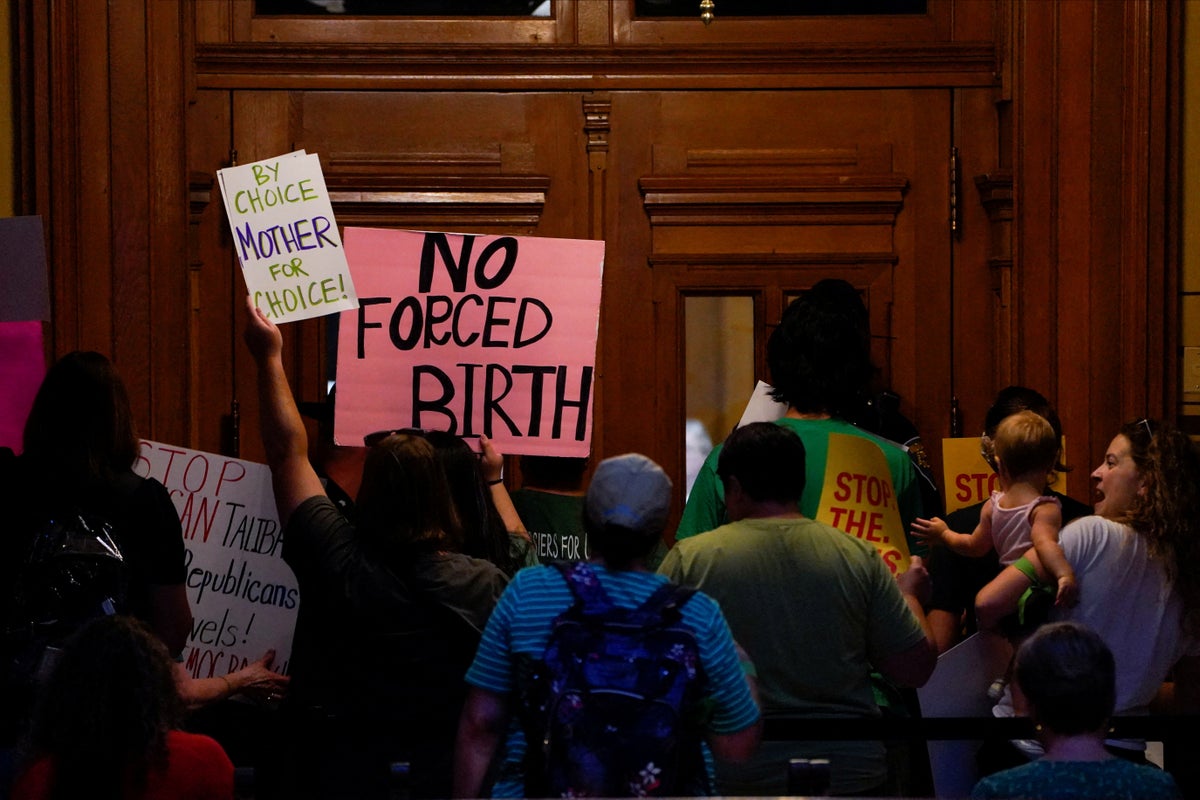
A judge in Indiana has blocked a newly enacted state law banning most abortions in the state, which was the first to draft a new anti-abortion law in the wake of the US Supreme Court’s decision to strike down the constitutional right to abortion care.
Three days after hearing arguments in a case stemming from a lawsuit to challenge the law, Monroe Circuit Court Judge Kelsey Hanlon granted a preliminary injunction on 22 September that blocks the state from enforcing it.
The judge’s ruling determines that the state’s constitution does provide a right to bodily autonomy, and that a ban unconstitutionally burdens Indiana residents’ rights “by making that autonomy largely contingent upon first experiencing extreme sexual violence or significant loss of physical health or death.”
Abortion care in Indiana faced international scrutiny – highlighting the fragility of care throughout the midwest and across the US – after an Indianapolis-area obstetrician-gynecologist provided abortion care to a 10-year-old rape survivor from neighbouring Ohio.
That doctor, Dr Caitlin Bernard, urged Indiana lawmakers to reject the bill.
Her employer, Indiana University Health, the state’s largest health system and the only academic medical centre in the state, said in a statement that the law would negatively impact its ability to provide “safe and effective patient care” and could “deter physicians seeking to live and practice healthcare” in the state.
Vice President Kamala Harris also traveled to the state as lawmakers convened in July.
The law, which took effect on 15 September, outlaws abortion at all stages of pregnancy. It has exceptions only in cases of rape or incest, “lethal fetal anomaly” or to prevent the “permanent impairment of the life or physical health of the pregnant woman.”
The judge’s ruling temporarily allows abortion providers to provide legal care for anyone up to 20 weeks of pregnancy, though a host of restrictions in the state, including requirements for multiple trips to clinics and mandatory ultrasounds, among other barriers to care, are still in place.
The state is likely to appeal.
The case is among several playing out across the US in the aftermath of the Supreme Court ruling on 24 June in Dobbs v Jackson Women’s Health Organization, which overturned landmark decisions affirming abortion rights in Roe v Wade and Planned Parenthood v Casey.
More than a dozen states have effectively banned all abortions, with limited exceptions, in recent months. By contrast, several recent court decisions have reversed abortion bans as their legal challenges play out in state courts.
The governor of West Virginia, the second state to advance new anti-abortion legislation in the months after the Supreme Court ruling, recently signed that measure into law.
Michigan voters also will also decide whether abortion is a protected right in the state following a record-breaking petitioning campaign and a victory for abortion rights in Kansas after voters there overwhelmingly shot down a ballot measure that would strip abortion protections in the state.
A joint statement from abortion rights groups that challenged the Indiana law, including the ACLU of Indiana and Planned Parenthood Federation of America, stressed that their “fight is far from over” after their temporary court victory.
“Indiana lawmakers have made it abundantly clear that this harm, this cruelty, is exactly the reality they had in mind when they passed [Senate Bill 1],” according to the groups’ statement. “There are 1.5 million people of reproductive age in the state of Indiana, and every single one of them deserve the right to make their own decisions about their bodies, families, and futures.”







